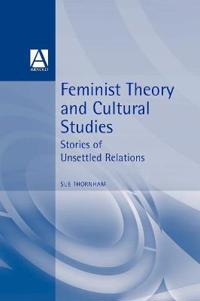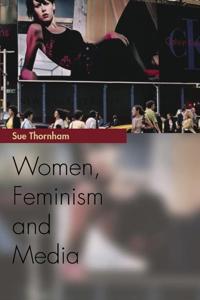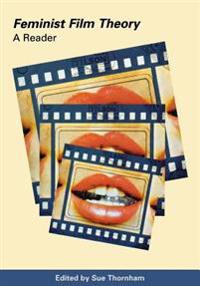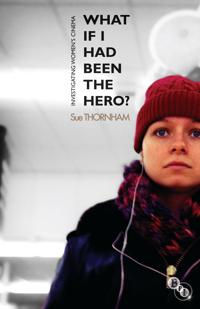Television Drama (Inbunden)
avSue Thornham, Tony Purvis
ISBN: 9780333968871 - UTGIVEN: 2004-10At a time when distinctions between television and film have blurred, and multiple TV channels offer us the chance to re-view TV dramas, there is still little attention paid to television drama as text or to ways of theorising such texts. This book offers both a clear account of theoretical approach[...]
Feminist Theory and Cultural Studies (Häftad)
avSue Thornham
ISBN: 9780340718988 - UTGIVEN: 200103The interaction of feminism with cultural studies has revolutionised both fields. Here, Sue Thornham traces the complex relationship between the two, examining the ways in which feminism has affected the key theoretical developments for the last thirty years and has influenced - and contested - the [...]
Women, Feminism and Media (Häftad)
avSue Thornham
ISBN: 9780748620715 - UTGIVEN: 200705Over the past few decades feminist media scholarship has flourished, to become a major influence on the fields of media, film and cultural studies. At the same time, the cultural shift towards 'post-feminism' has raised questions about the continuing validity of feminism as a defining term for this [...]
Feminist Film Theory (Pocket)
avSue Thornham
ISBN: 9780814782446 - UTGIVEN: 199904For the past twenty-five years, cinema has been a vital terrain on which feminist debates about culture, representation, and identity have been fought. This anthology charts the history of those debates, bringing together the key, classic essays in feminist film theory. "Feminist Film Theory" maps t[...]
What If I Had Been the Hero? (Häftad)
avSue Thornham
ISBN: 9781844573639 - UTGIVEN: 201207What happens when women tell their own stories in film? In What If I Had Been the Hero?, Sue Thornham addresses this question through an exploration of a wide range of films, from experimental feminist film to mainstream Hollywood, and from the 1970s to the present day, by film-makers including Sall[...]







